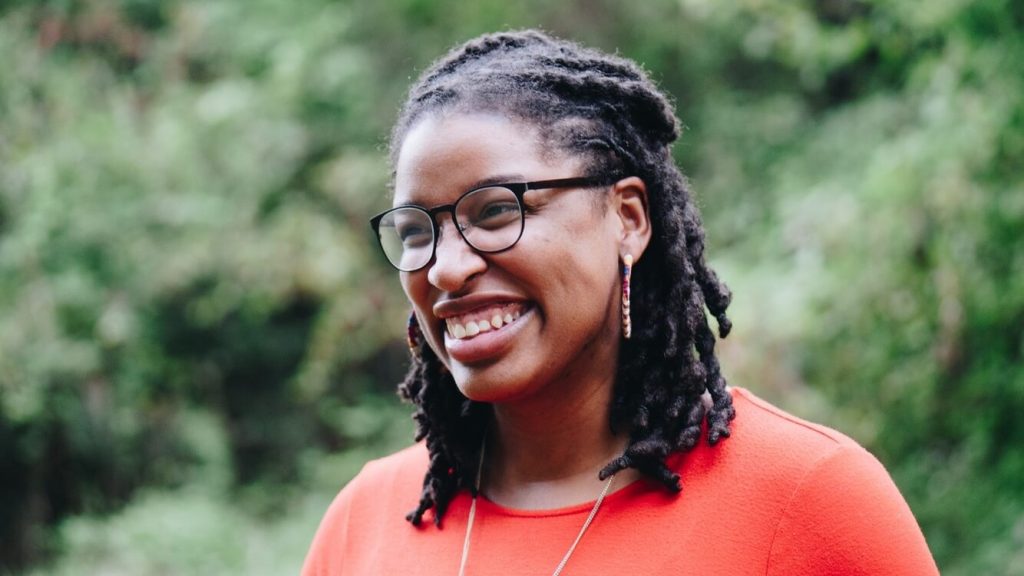According to a recent study, people of color and low-income Americans are more likely than white people to be concerned about climate change.
The study, published last month in the journal Proceedings of the National Academy of Sciences of the United States, surveyed a sample of 1,200 U.S. adults from different ethnic, socioeconomic, and economic backgrounds. Researchers asked participants to rate themselves and others on a scale from one to five (with five meaning “extremely concerned”) regarding their view on the state of the environment, whether or not they consider themselves an environmentalist, and which groups they think care about the planet the most.
The survey revealed that minority and poorer groups, and in particular, Blacks, Latinos, and Asians, rated themselves on average, a three (“moderately concerned”) or higher than the white and wealthy groups did when it comes to caring about the environment.
Please RT! Check out this new website to help #women and #POC join the conservation field and increase the #diversity of the conservation workforce: https://t.co/oHwx7GSIPK. #DiversifyGreen
— Green 2.0 (@DiverseGreen) November 1, 2018
As reported by CityLab, it’s not unusual that white people are less concerned, as poor, minority groups are more likely to suffer from environmental disasters such as flooding from hurricanes Katrina, Irma, Florence, Harvey, and others. They are also more likely than white people to not receive relief from climate disaster. On top of that, poor communities are more likely to live closer to areas affected by air pollution – including from factory farms – which can lead to health issues in the long term.
When participants were asked whether they think of themselves as environmentalists, around two-thirds of Latino and Asian respondents answered yes, compared to only half of white respondents. Black respondents were the least likely, with only a third identifying with the term. Overall, respondents felt that poor and minority groups are less likely to care about the planet.
“We have stereotypes about who is an environmentalist, and the fact that, in our data, we saw these beliefs shared so widely across so many types of Americans suggests that they are very pervasive,” explained Rainer Romero-Canyas, a behavioral scientist for the Environmental Defense Fund and study co-author.
Despite caring more about the planet, a study by Green 2.0, an organization that advocates for more diversity in environmental groups, revealed that people of color make up just 12.4 percent of staff at nonprofits, 15.5 percent at government agencies, 12 percent at foundations. Numbers were even lower for higher-ranking positions.
According to Green 2.0 executive director Whitney Tome, the lack of diverse hires has consequences.
“Often we don’t even see ourselves in these organizations, let alone realize it’s a career option, because it doesn’t look like us or our communities,” she said. “Part of the challenge when you don’t have anybody in your organization who knows what it’s like being from African American, Hispanic, Latino, or Asian communities, is that it’s hard to know how your messages resonate with them.”
Mary Robinson on her climate justice mission via @FemiOke @AJStream How the principles of human rights and justice are essential in the fight against climate change #climatejustice #climateaction #HumanRights https://t.co/QMK45kmVWY
— MRFCJ (@MRFCJ) October 17, 2018
Tome added that by 2045, minorities are expected to make up more than half of the U.S. population. Essentially, environmental organizations are “leaving talent on the table” by hiring mostly white candidates.
“We cannot walk into the room acting as though we have the answers,” Romero-Canyas added. “It should be a conversation in which we learn from them and develop solutions.”
The pair agrees that if organizations don’t make more diverse hires, people of color may be less likely to apply. And without people of color on staff, organizations are missing an opportunity to make an authentic connection with the groups who are the first to suffer the consequences of climate change.
Mary Robinson, the former Irish president, agrees that it’s important to empower vulnerable groups to be a part of and lead conversations about solutions to climate change. She is the founder of the Mary Robinson Foundation – Climate Change, a nonprofit organization that “provides a space for facilitating action on climate justice to empower the poorest people and countries in their efforts to achieve sustainable and people-centered development.”
Become a CLUBKINDLY member today!


